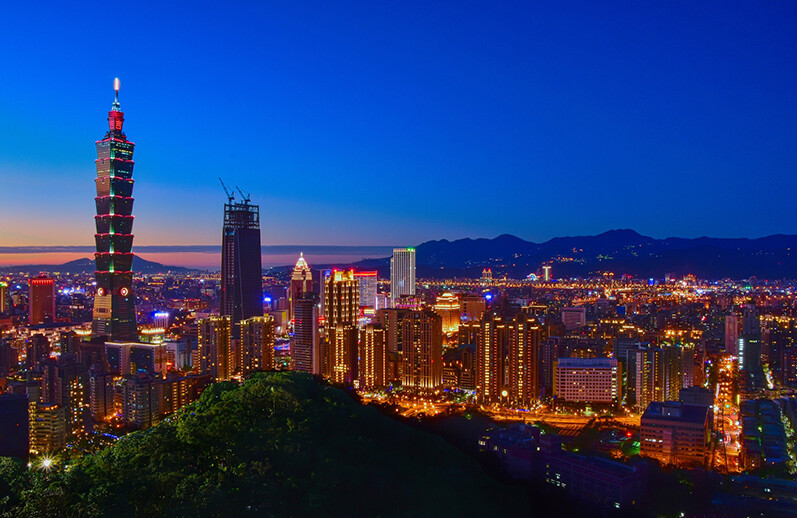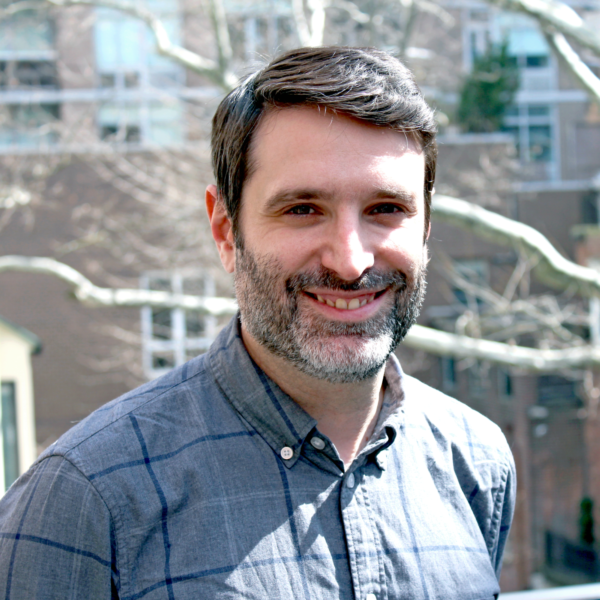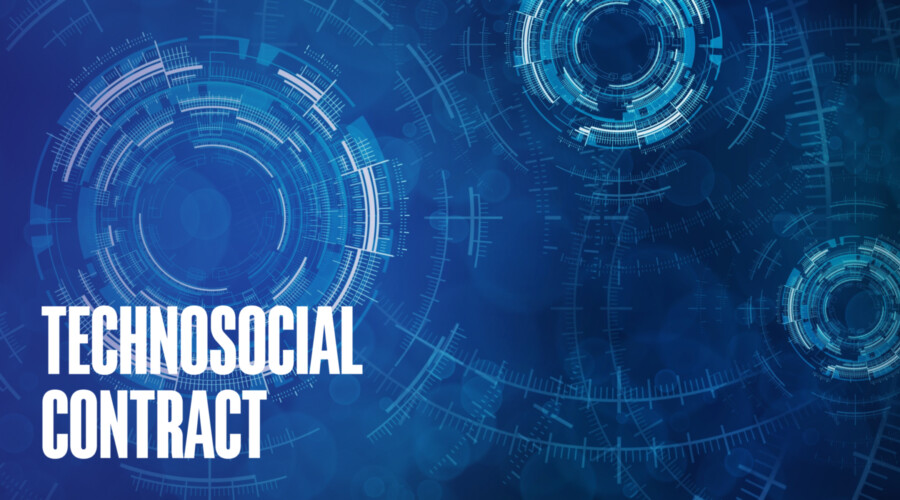Despite being close to the initial epicenter of the virus, Taiwan was able to contain its COVID-19 outbreak earlier in 2020. Audrey Tang, Taiwan's digital minister, explains how her office helped in this effort by fighting disinformation with some innovative ideas. What can countries like the U.S. or Italy learn from Taiwan in the battle against this pandemic?
ALEX WOODSON: Welcome to Global Ethics Weekly. I'm Alex Woodson from Carnegie Council in New York City.
This week’s podcast is with Audrey Tang, Taiwan’s digital minister.
Minister Tang and I spoke about her role working with Taiwan's government and how she got there and then we focused mostly on Taiwan’s response to coronavirus, which has received widespread praise.
Minister Tang was involved in Taiwan's efforts on the digital side and she shares some of the innovative ideas that have worked and what could help countries like the United States, Italy, and Spain, which are today dealing with the worst of this crisis.
For more on the pandemic, you can go to carnegiecouncil.org. Beyond podcasts and blog posts, we’ve also featured a lot of distance learning resources for teachers and students.
But for now, calling in from Taiwan, here’s my talk with Minister Audrey Tang.
Minister Tang, thank you so much for taking this call. It's great to speak with you.
AUDREY TANG: I am very happy to be here virtually.
ALEX WOODSON: Before we start our conversation, you're the digital minister of Taiwan. What exactly does that mean? What are your responsibilities as digital minister?
AUDREY TANG: In Taiwan we have 32 ministries, each with what we call a "vertical" minister, the head of the ministry and the councils. However, above the 32 there are nine horizontal ministers, ministers-at-large, who take care of cross-sectoral and cross-ministerial issues. Digital transformation is clearly one of the cross-ministerial issues. That is my mandate.
My work includes open government, youth engagement, social innovation, and anything that realizes the global goals using digital means. So my office, instead of being a ministry, is actually a virtual ministry with one delegate from each of the 32 ministries theoretically. But at the moment, I only have 20 colleagues, meaning that some ministries never sent people to my office, such as the Ministry of Defense, but most of the ministries that face the public have a delegate in my office.
ALEX WOODSON: How did you come to this role? What were you doing before you were the digital minister?
AUDREY TANG: My day job before joining the cabinet four years ago was working with the Siri team in Apple as a computational linguist and also with Oxford University Press crowd lexicography, meaning people doing dictionary editing together, and things like that. I am just joining the government I think because we helped occupy the parliament in March 2014 for 22 days, and it was thoroughly nonviolent and very successful, so much so that people see that it is actually easier to deliberate about things instead of occupying the parliament for each major issue. So the cabinet hired us as reverse-mentors around the end of 2014. I basically got promoted from being an understudy in 2014–2015 into a full minister in 2016.
ALEX WOODSON: I want to speak a little bit about the coronavirus pandemic. There has been a lot written about Taiwan and how Taiwan was able to contain at least the first wave back in late January and early February. For you, working in the government of Taiwan and knowing that this could be an issue, when did you first realize that coronavirus was something that Taiwan needed to really take seriously?
AUDREY TANG: I think it was last December 31, where the Central Epidemic Command Center or the prototype of it announced that we needed to increase inspection measures to screen passengers on inbound travel for a while.
ALEX WOODSON: What were the first steps that you took on December 31 when you got this message?
AUDREY TANG: A few things. At that time, everybody was focused on the presidential election, which was January 11. My work is mostly ensuring that a civic sector could respond to disinformation very quickly and get the fact checkers, the first line of response, from the government.
As I was already using what we call "mimetic engineering" and "epidemic metaphors" at the time as a metaphor of counter-disinformation, one of my first interventions at that time was to ensure that the Centers for Disease Control (CDC) joined the group that rose out of the very rapid response of what we called "humor over rumor" response teams, making sure that whenever there is any disinformation—we didn't know it would be a pandemic at the time—about the novel coronavirus, people could get a timely response from the Ministry of Health and Welfare's social media team.
I think around that time people were already seeing a lot of efforts from—I don't know if they were foreign or not—interventions trying to interfere with the presidential election, so people were already on high alert anyway when it came to disinformation. It doesn't seem like an extra thing to do; it was basically to add one more item to the humor-over-rumor agenda.
[Editor's note: Minister Tang offered this clarification on Taiwan's pre-election response to the virus: "One point of clarification about the part on pre-election action—while Taiwan increased inspection measures in December 31, the CDC counter-disinformation work started a few days later (i.e., not on the same day). I looked at my public records and it's first mentioned on January 9: https://sayit.pdis.nat.gov.tw/2020-01-09-denmark-delegation-visits#s369669."]
ALEX WOODSON: What kind of disinformation were you seeing in early January?
AUDREY TANG: There was a lot. For example, before the election there was trending disinformation that tried to portray the Hong Kong protestors as rioters, and there was popular disinformation that repurposed a Reuters photo and said that teenage rioters in Hong Kong were being paid a lot of money to "murder the police." Of course, the coronavirus was not trending at that time, so there was a lot of focus around late November on just portraying the Hong Kong people who fought for democracy as "rioters."
We traced with the Taiwan Fact-Checking Center, an independent fact-checking organ, the source of that recaptioning, where Reuters said, "A teenage extradition bill protestor is seen during a march to demand democracy," which is a very neutral caption. The Zhongyang Zhengfawei, which is the central political law unit of the Chinese Communist Party of the People's Republic of China, recaptioned that photo, saying, "This 13-year-old thug bought new iPhones and game consoles and brand-name sports shoes in recruiting his brothers to join the riot."
So we worked on a scheme that we call "notice and public notice," that makes sure that instead of taking things down, people who share this on social media see the fine print that says, "This has been debunked," and "Please click here to learn more about the source of this disinformation."
ALEX WOODSON: I want to speak about some more of the early responses, but first, just to carry on with disinformation, I assume you're still seeing some types of disinformation relating to coronavirus today in Taiwan.
AUDREY TANG: Yes, of course. For example, in early February there was a very trendy way of spreading—this is actually a scam level but also disinformation—that said: "You cannot buy masks with money now. Masks will be in very short supply. A certain manufacturer sponsored 2,000 boxes of masks. You can get a box for free just by clicking 'share' on this post." Predictably the post went viral, but nobody who shared a post actually got any masks. They maybe got spear-fishing emails or some other social engineering cybersecurity attacks.
To counter that sort of disinformation, the civil society's response was simply to develop an open data-backed map. When I say a "map," it is actually more than 100 different tools including maps, apps, chatbots, and voice assistants that can tell you which of your nearby pharmacies still have masks in stock so that you can just walk to it, present them your National Health Insurance (NHI) card, and get three masks. Basically this is a way to address disinformation through radical transparency.
ALEX WOODSON: I was going to ask about that actually, the Face Mask Map. That came together as a result of fighting disinformation?
AUDREY TANG: That's exactly right. It wasn't a government project. I must be very clear about this. This is pure social innovation. Howard Wu, Wu Chan Wei, in Tainan, Taiwan, in the Good Ideas Studio, while working with Google Technologies and promoting them in Tainan, came about this idea independently, even before we deployed the masks in the pharmacies. At that time, convenience stores were selling masks and were selling out very quickly. If they arrived by 2:00 a.m., they sold out by 3:00 a.m.
Howard Wu detected that on the LINE—which is the end-to-end encryption system that Taiwanese people want to use, much like WhatsApp—a lot of his relatives' and family's time was spent messaging each other which convenience stores still had masks. So he wrote a map where they could report on that map, and the map could just radically transparently share the information with all of his family and relatives. So that started as a civil society tool.
ALEX WOODSON: When did your office get involved in this tool?
AUDREY TANG: I didn't personally get involved with the tool per se. What I did was show the prime minister the tool. When Howard deployed that tool and when we decided that we were going to enlist pharmacies in the distribution, I think around February 3 I showed the premier this tool and said, "You know, instead of starting procurement and waiting for five weeks or so for something like that to be done by the contractors, why don't we just ask the contractors to work with the pharmacies and see if the pharmacies are willing to publish their stock levels as open data, so that people like Howard Wu can independently do the visualization?" The premier said it was a great idea, and so that went online just three days later, on February 6.
ALEX WOODSON: I know it has been a success, and there have been a lot of articles written about it that I have seen.
What are some of the other ways that your office has helped in fighting coronavirus?
AUDREY TANG: Making sure that everybody has access to masks, to have the mask availability level up to three-quarters of the population is actually a very effective way—coupled, of course, with good hand-washing and hygiene habits—to increase the de facto social distance because Taiwan is one of the world's most densely populated areas. Face masks basically buy us a lot more time. If people—with symptoms or not—wear masks, it is simply much more difficult for the coronavirus to travel.
By analyzing the data that we get from the pharmacies—because everybody needs to purchase using their NHI app, and one thing the NHI records is age—we discovered after rolling out the pharmacies' queuing system with masks that working-age people, people in the their thirties and forties with long working hours half their working hours overlapped with pharmacies' opening hours, which means that they are less likely to get masks from pharmacies.
My office worked with the National Health Insurance agency as well as with vendors such as ChungHwa Telecom and Trade-Van to rev up what we call the "e-mask" system, which is the 2.0 system that lets people order masks online and have them delivered to a nearby convenience store, and that runs in parallel with the pharmacies.
It is a resounding success. Yesterday I personally collected the first batch, and it took me only one minute from a nearby convenience store. As of now, there are more than 1.5 million people already registered for mask delivery online, and they will get a pair of masks next week. That is a large number of people who were not covered by the pharmacy plan.
ALEX WOODSON: Here in New York City, the pandemic has basically taken over all aspects of life. It's all everyone talks about. All of our jobs are affected by it in some ways. I don't think it is exactly that way in Taiwan. Are you able to focus on other projects, other initiatives right now, or are you pretty much focused on the pandemic at the moment?
AUDREY TANG: I spend maybe one-third of my time working on the pandemic. It's a significant chunk of my time, but I wouldn't say it's the only thing that I do.
ALEX WOODSON: What are some of the other projects and initiatives that you're working on right now?
AUDREY TANG: One is the Presidential Hackathon. Every year we run this interesting three-month Hackathon. It stretches the definition of "hackathon." The presidential office invites the entire society to propose novel ideas that correspond to one or more of the 169 Sustainable Development Goal targets. We incubate the top 20 ideas, the top 20 being partly determined by a new voting system called quadratic voting, that gives legitimacy to people's ideas.
They may range, for example, from using machine learning to shorten the time it takes to detect water leakage, which is Target 6.4, or using again machine learning to detect fraud in shell companies in real time, or using machine learning and drones to detect marine debris on the ocean or on the Strait before it hits our shores. All these are really good ideas.
So every year we look at those 20 ideas. We coach them to be trans-sectoral and also form beta collaboratives, where the people own the computation facilities as well as the data collection and governance mechanisms, sometimes using distributed ledger, and the government supports but does not control such data collaboratives. The top five teams every year receive a trophy from the president, and the trophy is a microprojector that when you turn it on shows the president promising you that whatever you did in the past three months will become national policy in the next year. That's politically binding power as the prize instead of any monetary prize of the Hackathon.
This year we're focusing on international collaboration as well, so there is a large part of it working with international counterparts, for example, govtech units around the world, so that people can collaborate on all the Sustainable Development Goals without leaving home. If by September—of course, if the coronavirus is over—everybody is welcome to fly to Taiwan, but otherwise we will work on a virtual reality immersive experience so that everybody can feel like they're in the same room hacking on specific hacking projects without traveling.
ALEX WOODSON: That's great. I would love to be able to fly to Taiwan in September. We'll see how that goes.
A lot of articles I have read about you discuss how transparency is central to your work. Another thing that has just come up from talking is that it seems the government works together in a very collaborative way. Watching from America right now, it's really refreshing to see that because that's not the way things are going for us right now. Where does that come from in Taiwan? Does that come from the protest movement in 2014, or was that around before then? What makes Taiwan able to operate in this fashion at the moment?
AUDREY TANG: I think there are two factors. One is that the civic sector actually is stronger and more legitimate and is seen as part of democracy because since the lifting of martial law in the 1980s local level community building projects, activism, and things like that make sure that people can participate in politics day to day instead of waiting for a vote. Indeed, at that time, we could not vote for the president. That came about only in 1996. So, for a decade or more, people in the social sector and civic sector gained legitimacy.
Even to this day, when there is a natural disaster or things like that, people listen to the leading charities and social entities more than the ministries. So, the ministers learned very early on that we cannot beat the protestors and activists; we must join their work. So that is a very long tradition. That is the first thing.
The second thing is that Taiwan embraced the idea of broadband as a human right. Even on top of the Yushan Mountain or Saviah, the indigenous name, we make sure that almost 4,000 meters high people still have 10 megabits/second of very affordable—like $17/month—unlimited 4G connection. By doing "hacktivism," which is the digital version of activism, we don't leave anyone behind. We bring technology to people, no matter how remote they are, and amplify their voices instead of asking people to come to technology.
ALEX WOODSON: Looking into the future for you, do you plan on staying in government? You mentioned your career beforehand, and I know you were very successful there too. Do you think you're going to stay in government, or do you have ambitions to get back into the private sector and do more activism or things like that?
AUDREY TANG: It's not an either/or thing. I am currently a board member of a New York-based international social innovation organization called RadicalxChange. My co-founders and fellow board members include Vitalik Buterin of Ethereum fame, Glen Weyl, Danielle Allen, and so on. I think it speaks volumes of our support from the Ministry of Civil Service that I can be both a digital minister and also a board member of international organizations working on activism in New York, Amsterdam, and Barcelona.
So I don't have to make choices. I am kind of between movements on one side and the government on the other, at the branch point. I always stress that I'm not working for the Taiwanese government but rather with the Taiwanese government.
ALEX WOODSON: Last question: As I said, we're kind of overwhelmed here in New York with the coronavirus, and obviously Italy, Spain, and a lot of other countries are in the same boat. If someone from government or civil society in the United States or Italy came to you, what do you think could be helpful for us at this point, where things have gotten a little bit out of control?
AUDREY TANG: I think the humor-over-rumor system is really one of the main reasons why we managed to converge the society after the presidential election. Presidential elections, as you know, in Taiwan often divide the society. After elections almost half the population feels that they have lost, and it sows discord in society on many levels. But through the humor-over-rumor disinformation counteraction plan, actually people when they laugh about something cannot feel outrage about it.
For example, there is a very popular bot on the end-to-end encrypted channels on LINE—and I think also they are developing it for Facebook Messenger and maybe soon for WhatsApp—called "Dr. Message." At www.getdr.com, you can see this cute dog with a whistle, and it's a bot that you can invite to your group chat or personally in a private chat.
What the robotic dog does—because it is developed by an anti-virus company—is just like an anti-virus it scans each incoming message without leaving a lock, and it compares it with everything that it already knows about disinformation. As soon as, for example, we share an outrageous picture of rioters in Hong Kong, "teenage people being paid to murder the police," the robotic dog can within a second post a clarification message.
The cadence is very important. If you look at an outrageous picture and that incites you to want to click "share," that's how disinformation gets viral. If you see a cute dog sharing an even cuter clarification message, all the psychological need to press "share" in outrage disappears, and it is far more likely that you will share the funny picture instead of the outrageous one. That is very, very useful.
It is partly supported by the Global Engagement Center, the U.S. State Department's counterterrorism arm, because they run a competition here in Taiwan with participants from Israel, Australia, and so on, on how to address propaganda and disinformation online, and Dr. Message won first place with a lot of monetary support I guess from your State Department. So thank you for that.
Something like that is very useful, especially during the coronavirus because people feel helpless, and the sense of helplessness fuels outrage. It is a fertile ground for outrage. So something like that deployed either by city government or by civil society I think would be very helpful.
ALEX WOODSON: I agree. I have gotten text messages from friends that I never thought I would see about conspiracy theories relating to coronavirus. It's hard to know what to say, but something like that I think could go a long way in helping that.
AUDREY TANG: As I said at the beginning of the interview, we make sure that not only civil society independent fact checkers can feed the Dr. Message dog, but also the Taiwan Food and Drug Administration, the Ministry of Foreign Affairs, and—since the coronavirus outbreak —the Taiwan Centers for Disease Control can all engineer mimetic messages as clarifications to Dr. Message. It's very useful.
If you look at the Taiwan Ministry of Health and Welfare's Twitter, you will see that they speak exclusively though their "spokesdog," which is a very dog-shaped spokesdog, and all their messages get far more viral than human spokespersons.
ALEX WOODSON: Minister Tang, thank you so much. I have learned a lot. It has been great to talk to you.
AUDREY TANG: Thank you.





